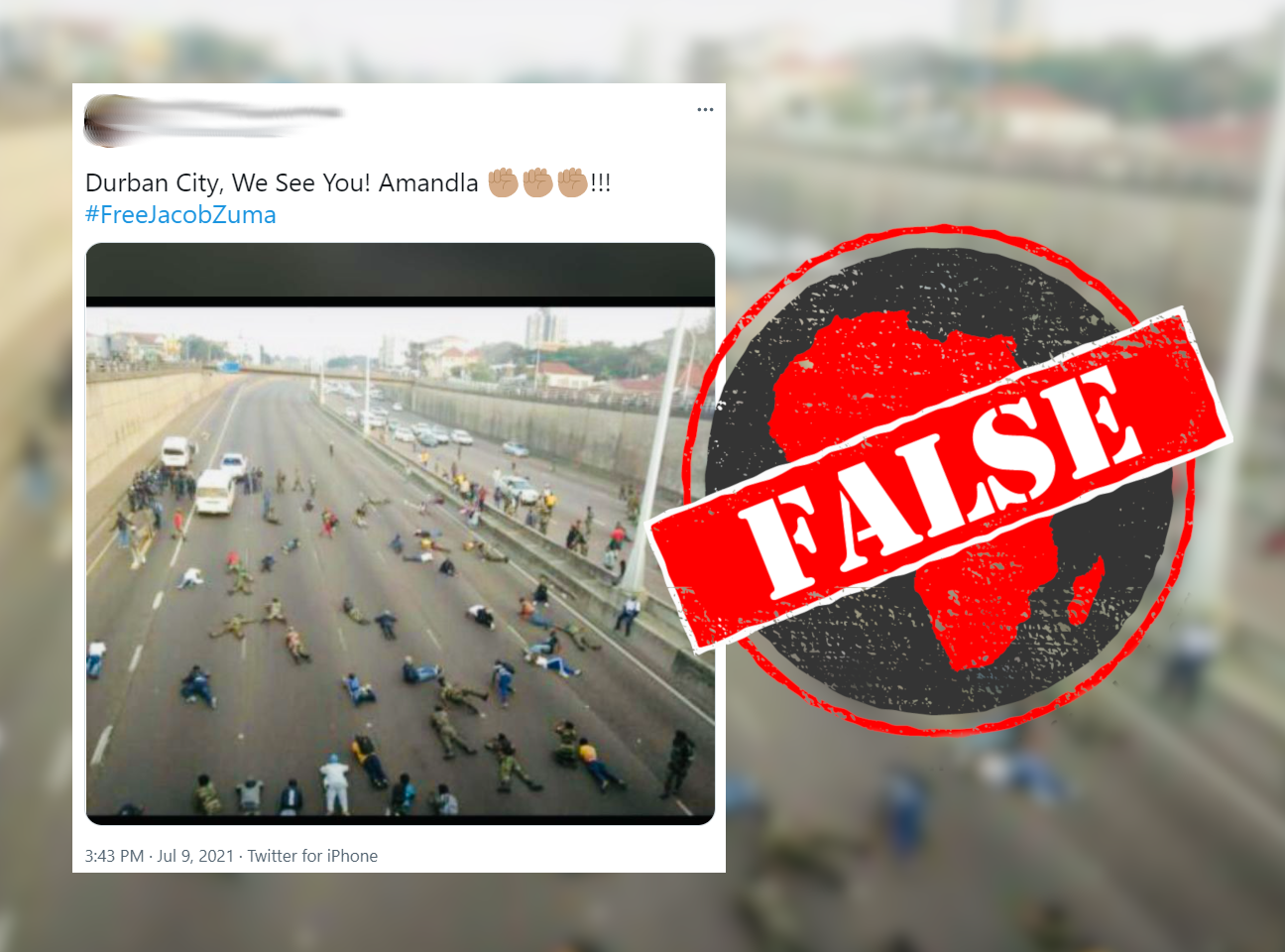A photo shared on Twitter by Dudu Zuma-Sambudla, daughter of former South African president Jacob Zuma, appears to show people blocking a freeway. They are lying on the ground, some in yellow shirts and camouflage army fatigues.
The tweet, posted on 9 July 2021, reads: “Durban City, We See You! Amandla!!! #FreeJacobZuma.” It has been reshared nearly 1,000 times and attracted over 3,800 “likes”.
Africa Check previously fact-checked a video shared by Zuma-Sambudla after South Africa’s constitutional court sentenced her father to 15 months in prison for contempt of court.
The video, which showed people shooting into the air, was taken in Venezuela in South America in 2019. It did not show events at Nkandla, Zuma’s residence in KwaZulu-Natal province, in June 2021.
Protests, looting and violence have been reported across Durban, a city in the eThekwini metropolitan municipality in KwaZulu-Natal. Some of the protesters appear to be demanding Zuma be released from jail.
The photo has also been posted on Facebook, with the same claim that it shows these protests.
But does the photo shared by Zuma-Sambudla show recent events? We checked.

Video from unrelated protest in 2020
A Google reverse image search revealed that the image is from 2020. It was published in an Independent Online news story about a protest against corruption organised by the Congress of South African Trade Unions, a trade union federation.
Using Twitter’s advanced search function we were able to search for tweets posted during September 2020 including the words “N3” and “Durban”.
This led us to a video filmed on 25 September. The same section of the freeway, people in army fatigues and yellow shirts can be seen.
The photo posted by Zuma-Sambudla was shot in Durban but it is from 2020. It shows events unrelated to protests in July 2021.
Republish our content for free
For publishers: what to do if your post is rated false
A fact-checker has rated your Facebook or Instagram post as “false”, “altered”, “partly false” or “missing context”. This could have serious consequences. What do you do?
Click on our guide for the steps you should follow.
Publishers guideAfrica Check teams up with Facebook
Africa Check is a partner in Meta's third-party fact-checking programme to help stop the spread of false information on social media.
The content we rate as “false” will be downgraded on Facebook and Instagram. This means fewer people will see it.
You can also help identify false information on Facebook. This guide explains how.


Add new comment